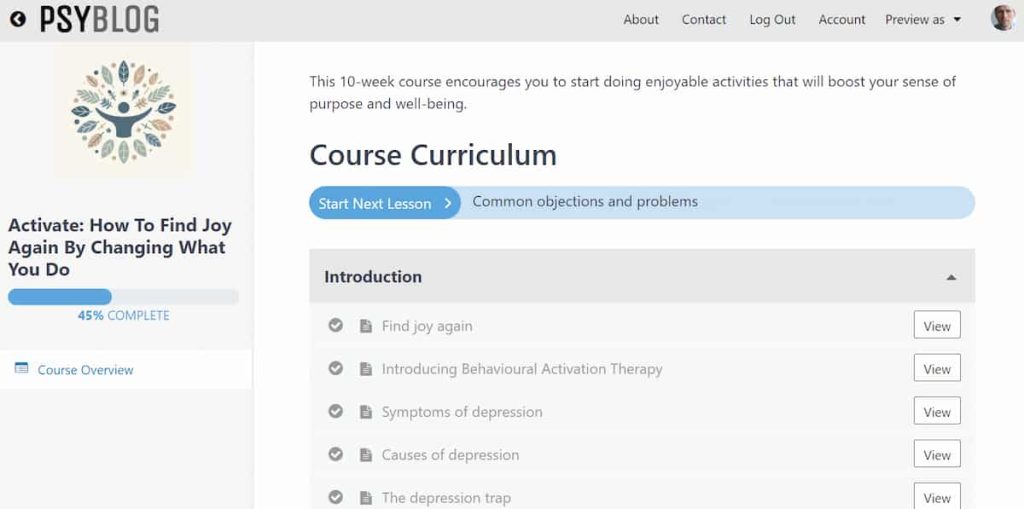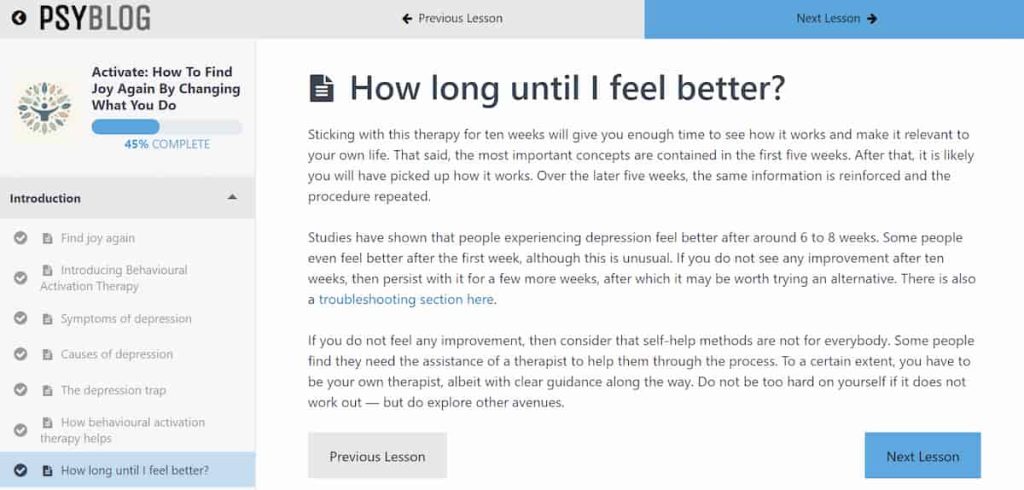Struggling With Positivity? This Therapy Combo Brings Daily Happiness (M)
Two standard psychological techniques together help people feel more positive about life.
Two standard psychological techniques together help people feel more positive about life.
The saddest events in life are health problems, bereavement and large financial losses.
The saddest events in life are health problems, bereavement and large financial losses.
It takes around four years for people to recover their well-being after the saddest events in life, such as health problems, bereavement and large financial losses, research finds.
In contrast, the happiest events in life — marriage, childbirth and a major financial gain — typically only provide a boost to happiness for two years.
Many major life events have relatively little effect on happiness, including moving house and getting a new job, the study also revealed.
Dr Nathan Kettlewell, the study’s first author, said:
“Marriage, childbirth and a major financial gain produced the greatest elevation to wellbeing, however they did not lead to long-lasting happiness – the positive effect generally wore off after two years.
However, there was also an anticipatory effect for marriage and childbirth, with wellbeing increasing prior to these events.”
The study tracked the major life events of 14,000 people in Australia over 12 years.
The four most common life events are getting a new job, moving house, pregnancy and injury or illness in a close family member.
The results showed that events that had the greatest negative impact on well-being were large financial losses, health problems and the death of a partner.
Those that had the greatest positive impact were a large financial gain, getting married and having a baby.
In contrast, getting fired, being promoted and moving house had relatively little effect on well-being.
Dr Kettlewell said:
“The life events that saw the deepest plunge in wellbeing were the death of a partner or child, separation, a large financial loss or a health shock.
But even for these negative experiences, on average people recovered to their pre-shock level of wellbeing by around four years.”
The researchers looked at two different types of happiness: feeling good and life satisfaction.
Life satisfaction is how people evaluate their lives overall while happiness refers to emotion felt in the moment.
Life events like marriage and retirement made people more satisfied with their lives, but did not make much difference to felt happiness.
People having children felt quite satisfied in the first year but were significantly less happy.
Dr Kettlewell said:
“While chasing after happiness may be misplaced, the results suggest that the best chances for enhancing wellbeing may lie in protecting against negative shocks, for example by establishing strong relationships, investing in good health and managing financial risks.
And we can take consolation from the fact that, although it takes time, wellbeing can recover from even the worst circumstances.”
The study was published in the journal SSM – Population Health (Kettlewell et al., 2020).
Mismatched millions: why so many people are stuck in jobs they hate. Will artificial intelligence save the day?
“Do not spoil what you have by desiring what you have not; remember that what you now have was once among the things you only hoped for.” ~ Epicurus
Are you feeling stuck, overwhelmed, or simply not yourself lately? It’s time to reclaim your happiness with PsyBlog’s 10-week online course, included in the Premium Membership.
Are you feeling stuck, overwhelmed, or simply not yourself lately? It’s time to reclaim your happiness with PsyBlog’s 10-week online course, included in the Premium Membership.
Activate is PsyBlog’s first online course, which is included in the new Premium Membership.
The course distils years of research and clinical experience into a practical, user-friendly 10-week program designed to help those feeling stuck or overwhelmed find joy again.
With a Premium Membership you will be able to access all 10 weeks of this course, with the first week currently now online.
The remaining parts of the course will be released week by week — keep an eye on the daily email updates for reminders.
A Premium Membership also gives you access to all members-only articles, premium content and other courses, as they become available.
Over the span of 10 weeks, “Activate: How To Find Joy Again By Changing What You Do” will guide you through:

Behavioural activation is a powerful approach that emerged from cognitive-behavioural therapy (CBT), one of the most effective methods for treating depression and improving mental well-being.
While CBT focuses on changing both thoughts and behaviours, behavioural activation zeroes in on actions, making it easier to implement and understand.
By focusing on what you do, rather than what you think, this method helps you gradually build a life filled with activities that bring you joy and satisfaction.
Research has shown that behavioural activation is just as effective as traditional CBT.
The beauty of this approach lies in its simplicity and practicality—changing behaviours is often more straightforward than changing thoughts.
As you engage in positive activities, your thoughts and feelings naturally begin to shift towards a more positive outlook.

Don’t let another day go by feeling less than your best. Take the first step towards a brighter, more joyful future.
Enroll now and unlock the tools you need to transform your life, one joyful activity at a time.
Can happiness be learned? Discover the surprising findings of a university course designed to unlock the secrets of joy.
The happiest countries in the world may not be what you have been told.
All personality types benefit from this type of conversation.
All personality types benefit from this type of conversation.
Having more meaningful or ‘deep’ conversations makes people happier, research finds.
Whether extravert or introvert, people who exchanged more meaningful information about relationships, politics or whatever, were happier.
At the other end of the scale, trivial chat or ‘small talk’ had no link to happiness, one way or the other.
Professor Matthias Mehl, who led the study, said:
“We do not think anymore that there is an inherent tension between having small talk and having substantive conversations.
Small didn’t positively contribute to happiness, and it didn’t negatively contribute to it.
With this study, we wanted to find out whether it is primarily the quantity or the quality of our social encounters that matter for one’s well-being.”
For the study, small recording devices were used to capture snippets of everyday conversation from 486 volunteers.
Professor Mehl explained the difference between small talk and a substantive conversation in their study:
“We define small talk as a conversation where the two conversation partners walk away still knowing equally as much — or little — about each other and nothing else.
In substantive conversation, there is real, meaningful information exchanged.
Importantly, it could be about any topic — politics, relationships, the weather — it just needs to be at a more than trivial level of depth.”
Personality had no effect on how much of a happiness boost people got from deep conversations, Professor Mehl said:
“We expected that personality might make a difference, for example that extroverts might benefit more from social interactions than introverts or that substantive conversations might be more closely linked to well-being for introverts than for extroverts, and were very surprised that this does not seem to be the case.”
Although small talk was not linked to happiness, it is still necessary, said Professor Mehl:
“I think of it like this: In every pill, there’s an inactive ingredient, and it’s a nice metaphor, because you cannot have the pill without the inactive ingredient.
We all understand that small talk is a necessary component to our social lives.
You cannot usually walk up to a stranger and jump right into a deep, existential conversation because of social norms.”
Perhaps, says Professor Mehl, people could be prescribed a deep conversation as a treatment:
“I would like to experimentally ‘prescribe’ people a few more substantive conversations and see whether that does something to their happiness.”
The study was published in the journal Psychological Science (Milek et al., 2018).
Find out what are the ultimate keys to happiness in this wide-ranging study.
People are wrong about the type of goals that will make them happiest.
Join the free PsyBlog mailing list. No spam, ever.